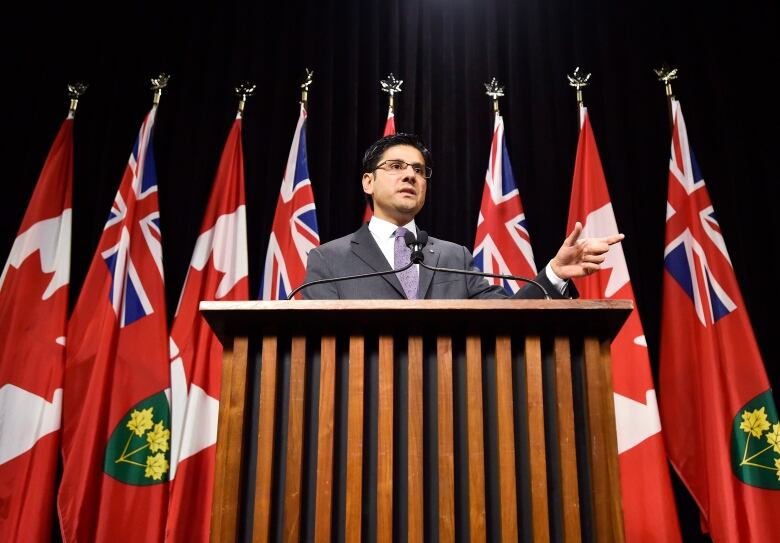6 years with Chief Glenn De Caire: Highlights and controversies
Oversight board to decide on 3-year contract extension
The city of Hamilton's Police Services Board is deciding whether to extend De Caire's contract for three more years at the end of 2016. It'll likely come up at their meeting on Thursday but must be decided before the end of the year.
As the oversight board considers the decision, here are some highlights and controversies from the chief's tenure in Hamilton, with links to more background.
De Caire's background

De Caire was part of creating and implementing that strategy, TAVIS, as an innovative, proactive answer to gun and gang activity, but it came to be seen as heavy-handed and problematic for residents of Toronto's high-crime neighbourhoods.
De Caire is a graduate of the FBI National Academy in Quantico, Virginia. He also holds a degree from York University and certificates in criminal justice education from the University of Virginia and in human resource management from York.
Crime on the decline in Hamilton
Total crime is in decline, down 29.6 per cent compared to 2009, which follows an eight-year national trend. Violent crime in Hamilton was up slightly in 2014.
Comparing Hamilton to similar cities, for 2014 the city has the highest crime rate, crime severity index, violent crime rate and violent crime severity index except for Toronto.
ACTION teams

The high-profile foot and bicycle officers are known by their yellow jackets and are credited with helping cut crime in the core and also connect at-risk individuals with assistance.
But in June, seven members of the ACTION were arrested and five charged as part of a probe into falsified tickets.
ACTION officers are the only ones in the Hamilton force who do police street checks, a practice decried as unconstitutional and subject to new regulations the province is drafting.
The province is cutting the dedicated funding for ACTION, but De Caire said he'll continue it.
Showdowns over police budgets
De Caire and city council spent much of 2013 in an impasse over police budgets after De Caire presented a budget representing a more than 5 per cent increase over the previous year. In the fall of that tumultuous year, De Caire said he'd retire at the end of his contract.
The next summer, he cited community support, including letters from many high-profile Hamiltonians, and said he didn't want to leave after all.
Racial sensitivity

Board chair Coun. Lloyd Ferguson supported the chief but anti-racism advocates called for the chief to publicly apologize for the decision to sign the letter and pass it on to officers without making note he didn't endorse the racist comment was unacceptable. He has not.
Street checks/carding

De Caire said in a letter to the public safety minister that limiting or abolishing the practice will make Hamilton less safe. The Ontario Human Rights Commission said an example the chief used in his letter was "textbook description of racial profiling," a conclusion the chief rejected.
Officer discipline
De Caire has a reputation for having an uncompromising nature and implementing strict disciplinary measures. He's butted heads with the police officer union more than once in the last five years. A recent union survey showed about half of the officers who responded reported "extreme dissatisfaction" with their jobs.
He's been a vocal advocate that officers suspended on Police Service Act charges should not be paid. In June, there were 12 officers on paid suspension.
Use of force

The officers involved were cleared of any criminal wrongdoing, but a 2014 coroner's inquest into his death produced 10 recommendations to curb police shootings. When the province opened the door for more widespread use of conducted energy weapons, or Tasers, among the front-line officers, Hamilton was one of the first and most enthusiastic forces to respond.
Mental health

Wednesday: Should the chief's contract be extended? Perspectives from Hamilton leaders and community members